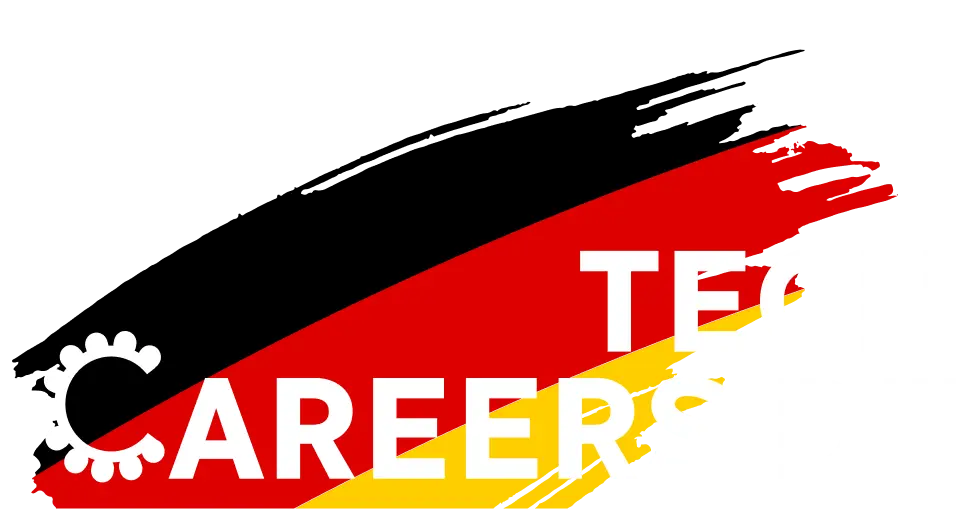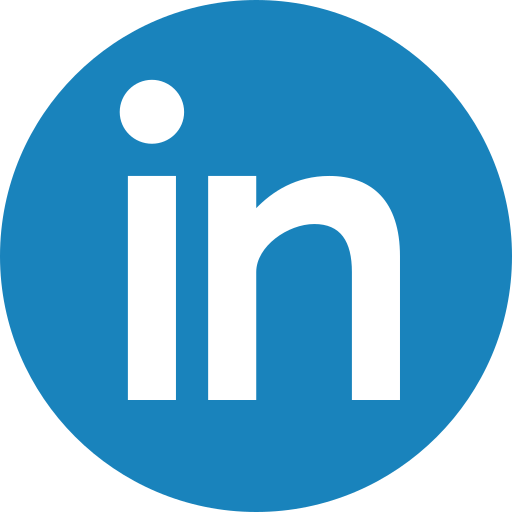

Job interviews play a crucial role in securing employment in any industry, and the IT sector in Germany is no exception. As a hub for tech and innovation, the country offers numerous opportunities for IT professionals, both for English speakers and international students. Familiarizing yourself with common German job interview questions and answers is essential to stand out to potential employers and secure your dream IT job in Germany.
To help you prepare for your job interview in Germany, this guide will cover the most common German interview questions and provide tips for answering them effectively. We’ll also discuss key steps to prepare for an interview and ensure you stand out to potential employers. Understanding the nuances of Germany interview questions and answers is crucial for navigating the job market and securing your desired position in this competitive landscape.
Common Interview Questions in Germany for IT Jobs
Answering IT interview questions and answers effectively is crucial for IT professionals seeking to succeed in interviews and secure employment in this country. Below is a list of typical German interview questions for IT positions, covering technical, behavioral, and cultural aspects. For those pursuing IT jobs Munich or other big cities, preparing thoroughly for these interview queries and showcasing relevant skills and experiences can significantly increase their chances of landing coveted positions in the city’s tech hub.
Technical Questions:
These queries assess your technical knowledge and skills related to the specific positions you’re applying for. Examples include:
A. Object-oriented programming (OOP) and functional programming (FP) are two different approaches to software development. OOP is based on the concept of objects, which are entities that encapsulate data and behavior. It emphasizes modularity, reusability, and extensibility. FP, on the other hand, is based on mathematical functions, which are pure and stateless. It emphasizes immutability, declarative programming, and composability. In summary, OOP is more suited for large, complex, and dynamic systems, while FP is more suited for parallel, distributed, and data-intensive systems.
A. When debugging a complex software issue, I follow a systematic approach that involves several steps. First, I reproduce the issue in a controlled environment to isolate the problem. Then, I gather as much information as possible, such as error messages, logs, and stack traces. Next, I analyze the code and look for possible causes of the problem, such as syntax errors, logical errors, or performance issues. Then, I test different solutions and verify the results. Finally, I document the solution and share it with the team. Throughout the process, I stay organized, methodical, and persistent.
A. I am proficient in several programming stacks and frameworks, including Java, Python, JavaScript, and SQL. For Java, I am familiar with Spring Boot, Hibernate, and JPA. For Python, I am familiar with Flask, Django, and NumPy. For JavaScript, I am familiar with React, Vue.js, and Node.js. For SQL, I am familiar with MySQL, PostgreSQL, and Oracle. I keep up-to-date with the latest trends and advancements in these stacks and frameworks by reading blogs, attending conferences, and participating in online communities.
Behavioral Questions:
These queries evaluate your soft skills, such as teamwork, communication, and problem-solving abilities. Examples include:
A. When facing tight deadlines or high-pressure situations, I remain calm and focused by prioritizing tasks, delegating responsibilities, and communicating clearly with my team. I break down the project into manageable tasks and create a timeline that ensures we meet the deadline. I also motivate and encourage team members by acknowledging their hard work and providing constructive feedback.
A. Yes, there was a time when two team members had a disagreement about the best approach to a project. I scheduled a meeting with both team members and facilitated an open and respectful discussion. I listened actively to their perspectives, acknowledged their concerns, and found a compromise that satisfied both parties. We agreed on a new approach that combined both ideas’ strengths and successfully delivered the project.
A. I regularly read industry publications such as Wired, TechCrunch, and Computerworld to stay up-to-date with the latest IT trends and advancements. I also participate in online communities such as GitHub, Stack Overflow, and Reddit. I attend webinars and conferences on topics such as AI, cybersecurity, and cloud computing. Additionally, I experiment with new tools and technologies by building personal projects and contributing to open-source projects.
Cultural Questions:
These questions gauge your understanding of German culture and language, as well as your ability to adapt to the local work environment. Examples include:
A. I have a basic understanding of the German language, and I am currently taking German classes to improve my proficiency. (If applicable: Guten Tag, ich freue mich, hier zu sein. Ich spreche Deutsch auf einem Grundniveau, aber ich arbeite daran, meine Fähigkeiten zu verbessern.)
A. I find German culture’s emphasis on punctuality, efficiency, and respect for authority very appealing. To integrate into the local community, I plan to participate in cultural events, volunteer opportunities, and language exchange programs. I will also make an effort to learn about German customs and etiquette, and to respect and appreciate the differences between German and my own culture.
A. Yes, I have previously worked with German clients, and I navigated cultural differences by researching the cultural norms and expectations of my clients and adapting my communication style accordingly. I learned to be direct and concise in my communication, to respect deadlines and schedules, and to avoid humor or sarcasm that could be misunderstood. I also made an effort to learn basic German phrases and to demonstrate an interest in German culture and language.
Download a List of 100 German Interview Questions and Answers
Enhance your interview preparation with our comprehensive guide. Get your free copy now and ace your next interview!
Tips for Answering Interview Questions Effectively
Preparing for typical German interview questions with answers can help IT professionals to excel in position interviews and land their dream job in the thriving German IT industry. Providing an introduction in German language for interview is an excellent way to demonstrate your language proficiency and cultural awareness to potential employers. To answer job interview questions and answers effectively, keep the following tips in mind:

- Tailor your answers to the specific position and company: Study the job description and research the company to understand their needs and values. Then tailor your answers to the specific position and company, highlighting your relevant skills and experiences.
- Use the STAR method for behavioral queries: For behavioral queries, use the STAR (Situation, Task, Action, Result) method to structure your answers. This will help you provide a clear, concise, and well-organized response that showcases your abilities.
- Highlight your accomplishments: During the interview, be sure to highlight your accomplishments and specific contributions in previous jobs. This will demonstrate your potential and make you stand out among other candidates.
- Be honest about your abilities: It’s important to be honest about your abilities and experiences. If you don’t know the answer to a query, admit it and explain how you would go about finding the solution.
- Use concrete examples: Whenever possible, use concrete examples to illustrate your skills and experiences. This will make your answers more memorable and convincing to the interviewer.
- Show enthusiasm and passion: Show your enthusiasm and passion for the IT field and the company. This will demonstrate your commitment to your career and your potential value to the company.
By following these tips and best practices, you can answer interview questions effectively and increase your chances of success in the German job market. Remember, the key to success is tailoring your answers to the specific job and company, highlighting your relevant skills and experiences, and demonstrating your passion and commitment to your career. When preparing for HR interview questions in German, it’s essential to showcase not only your qualifications but also your cultural fit and understanding of the local work environment, ensuring you leave a lasting impression on potential employers.
Preparing for German Job Interview
In addition to familiarizing yourself with German interview questions and answers, take the following steps to prepare for your interview:
- Research the company: Gain a deeper understanding of the company’s values, mission, and culture. This will help you tailor your answers and demonstrate genuine interest in the organization.
- Practice with mock interviews: Prepare for your interview by practicing with friends, family, or online resources. This will help you build confidence and refine your answers to common interview queries.
- Prepare a list of queries to ask the interviewer: Develop a list of queries to ask the interviewer about the company, team, or role. This will show that you’re engaged and proactive in learning more about the opportunity.
- Review the job description: Analyze the description to identify the key skills and qualifications required for the role. Be prepared to discuss how your experience aligns with these requirements.
- Familiarize yourself with German HR interview queries: HR interviews may cover topics such as your work permit, visa status, or relocation plans. Be prepared to discuss these matters if they arise during the interview process.

In summary, preparing for a job interview in German requires familiarizing yourself with common German interview questions, honing your technical and soft skills, and researching the company and its culture. Practicing with mock interviews and preparing a list of queries to ask the interviewer can further increase your chances of success. By following these tips and making use of the resources provided, you will be well-equipped to succeed in your next job interview in Germany, whether you’re pursuing IT jobs in Germany for English speakers or seeking IT courses in Germany for international students. Preparing for job interview questions and answers in German is a critical step for non-native German speakers pursuing IT jobs in Germany to showcase their language proficiency and increase their chances of success in job interviews. So, go ahead and put your best foot forward, and make your mark in the thriving German IT industry.
Need Help in Hiring Tech Specialists? Contact Us!
We can help you in your job post placement and promotion; finding and interviewing the candidates. Get your vacancy listed on our website and choose from thousands of top IT professionals in Germany.





 Previous Post
Previous Post Next Post
Next Post